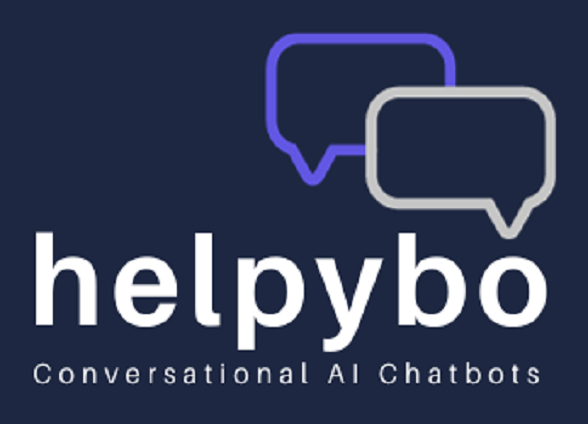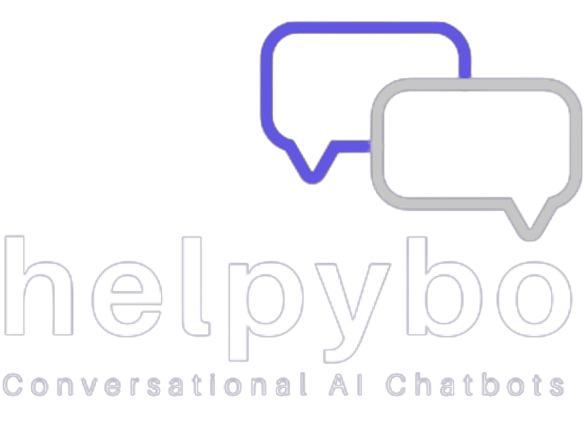How to Choose the Right Chatbot

Chatbots have transformed company interactions with consumers, work automation, and
efficiency enhancement. The right chatbot may make all the difference whether your goals are
to raise customer service, create leads, or improve eCommerce interactions. With so many
choices available, how to choose the best chatbot for customer service or other business
needs is a challenge many face. This blog will cover what you need to know to make a wise
choice.
What is a Chatbot?
A chatbot is a software program meant to replicate human-like dialogues with consumers. They
connect across several channels—websites, social media, messaging platforms—using either
artificial intelligence (AI) or preset guidelines. Common applications include:
- Customer Service: Responding to inquiries, organizing s earches, and providing 24/7 assistance.
- Lead Generation: Inviting guests and gathering data for further visits.
- eCommerce Assistance: Product recommendations, direction of buying guidance, order processing.
From big companies to tiny startups, chatbots are vital tools for automating monotonous chores
and enhancing customer experience.
Why Choosing the Right Chatbot Matters?
The right chatbot may turn into a great advantage increasing customer satisfaction, ROI, and
efficiency. On the other hand, the poor decision could result in disappointed expectations and
squandered resources. Here’s why choosing a chatbot is so important:
- Enhanced Customer Engagement: An excellent quality chatbot enhances user
experience and interactions, hence improving customer engagement. - Operational Efficiency: Automating repetitive chores saves time and money in
operational efficiency. - Scalability: The correct chatbot changes with your company’s expansion and rising
client contacts. - Cost-Effectiveness: Investing in the best chatbot for business purposes lowers
running expenses while nevertheless providing great value.
What features to look for in a chatbot for your business?
Choosing the ideal chatbot means assessing your needs and the features of the tool. These are the main considerations
1. Ease of Use and Setup
Even for nontechnical staff, a successful chatbot platform should be easy to use. Look for low
setup needs and easy interfaces.
2. AI Capabilities vs. Rule-Based Functionality
Choose whether your company needs an AI-powered chatbot for sophisticated automation and customized interactions or a rule-based chatbot for basic chores.
3. Customization Options
Customizing scripts, replies, and integrations guarantees the chatbot fits your brand and particular corporate demand.
4. Integration with Existing Tools
Make sure the chatbot can easily interface with eCommerce systems, email marketing tools, and CRM systems. Explore essential chatbot features to look for.
5. Scalability and Growth
Select a chatbot that will grow with your company, managing rising consumer inquiries and
adding more capability as needed.
Types of Chatbots and Their Applications
Understanding the types of chatbots is essential for making an informed decision
Rule-Based Chatbots
- Work using decision trees and set guidelines.
- Perfect for minor chores including FAQs and easy processes.
- Restricted in managing challenging questions or providing individualised solutions
AI-Powered Chatbots
- Apply innovative AI tools including natural language processing and machine learning.
- Excel is great at offering individualized, human-like interactions.
- Perfect for companies looking for flexibility and sophisticated automation.
AI-powered chatbot selection guide: AI chatbots are the answer whether your company
needs dynamic, scalable solutions for lead generation, customer interaction, or eCommerce.

Steps for Selecting the Right Chatbot for Your Company
Step 1: Assess Your Business Needs
List your main objectives. Do you need a chatbot for lead generation, eCommerce, or
customer support? Clearly specify the goals and extent.
Step 2: Determine Budget and ROI
Plan a reasonable budget and anticipate the possible return on investment. Balance
characteristics you require with cost.
Step 3: Evaluate Chatbot Platforms
Check well-known sites like Intercom, Drift, ManyChat, and Tidio. Examine their case studies,
user feedback, and capabilities. Using free trials could provide insightful analysis.
Step 4: Analyze Required Features
Know what qualities in a chatbot for your company would be most important, including:
- Website, social media, messaging apps—multichannel support.
- Sentiment analysis and learning algorithms are among AI tools.
- Data compliance and privacy.
Step 5: Ensure Easy Integration
Particularly with regard to CRM and marketing automation systems, a smart chatbot should fit
well with current technologies.
Step 6: Evaluate Customer Support
Choose systems with consistent customer support, particularly in periods of deployment and growing.
Best Chatbot Platforms for Small Businesses
Here are some of the top chatbot platforms for small businesses together with their
advantages and drawbacks:
1. Intercom
Pros: Excellent for customer service and sales, advanced artificial intelligence powers.
Cons: Higher prices for smaller companies.
2. Drift
Pros: One of the pros is leads generation and sales conversion expertise.
Cons: Less personalizing with less expensive models.
3. ManyChat
Pros: Best for social media and eCommerce businesses.
Cons: Limited integration options.
4. Tidio
Pros: Affordable for small businesses, easy setup.
Cons: Basic AI chatbot features compared to competitors.

5. Helpybo
Pros: Benefits include a complete chatbot platform with flexible AI-powered features. Provides
enterprises of all kinds great scalability, customizing tools, and flawless connection with CRMs.
Cons: Not enough offline support documentation; live help makes up for this.
Designed to handle consumer service, lead generation, and eCommerce demands effectively, Helpybo is a strong choice for companies looking for a reasonably priced yet feature-rich chatbot platform.
Best Practices for Chatbot Deployment
Use these recommended practices to guarantee your chatbot realizes its greatest possible
performance:
- Set Clear Objectives: Specify exactly what success looks like—that of customer
happiness, lead development, or cost control. - Optimize Chatbot Interactions: Track interactions and hone answers to keep
performance always better. - Train Your Chatbot Regularly: Update its knowledge base to properly manage
changing client demands. - Test Before Launching: est thoroughly to guarantee seamless operation on every
channel.
Why Does Your Business Need a Reliable Chatbot?
The success of a company depends critically on the chatbot chosen. Following the advice and
ideas in this book will help you to select a solution that fits your goals, improves consumer
experiences, and promotes efficiency. Whether you’re aiming to enhance customer support,
boost lead generation, or choose a chatbot for eCommerce websites, aligning the chatbot’s
features with your business needs is essential.
Start by investigating chatbot systems, feature tests, and the best solution catered to your
company requirements.
Why Choose Helpybo for Your Business?
Helpybo is an excellent choice as the right chatbot builder as it provides the ideal mix of cost,
adaptability, and capability. Helpybo enables companies to provide outstanding client
experiences while simplifying operations by means of AI-powered capabilities, flawless
integration choices, and user-friendly interface. Whether your company is small-business or
expanding, Helpybo’s scalable solutions and customizing tools guarantee it fits your particular
needs.
Choose Helpybo as your reliable chatbot selection right now to advance the operations of your
company

